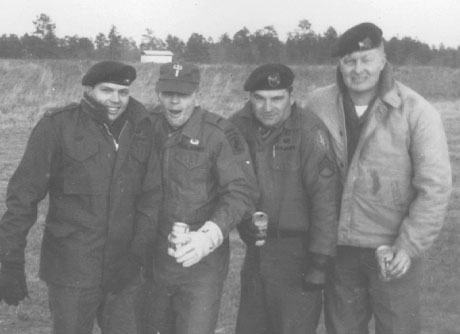
“United Flight 459, this is Havana. Go ahead.”
“I have an armed passenger in the cockpit. He wishes to send a message.”
“And what is the message?”
“He wishes to inform Fidel Castro of his pending arrival.”
“Is that the exact message, 459?”
“Negative. The exact message is: ‘Tell Fidel that El Rojo is coming.’”
So begins “The Lemon Dance,” Reds Helmey’s autobiographical account of
his life and the events that led up to January 11, 1969, the day he hijacked
a
United Airlines jet to Cuba to assassinate Fidel Castro.
What happened is a matter of record. Upon landing in Havana, Helmey was
arrested by Cuban G2 Security Police. He spent several months in a Cuban
prison,
until he was eventually put aboard a ship to Canada. There he turned himself
in to the
American Consulate, and was extradited to the U.S. where he was indicted
by a
Federal Grand Jury on charges of kidnapping and aircraft piracy. His trial
in Savannah
lasted for one week. After deliberating for 15 minutes, the jury found
Helmey not guilty.
That is the What. The Why is less clear-cut. At the time, Helmey said he
was part of
a CIA plot. Nine psychiatrists who examined him for trial say he was temporarily
insane.
Some people maintain he was simply a patriot.
For his own answer to the Why, Helmey reviews his entire life.
The book takes its title from the lemon dances Helmey attended as a young
man at the
American Legion Post 135. He went on Saturdays to dance and listen to the
Russ
Peacock Orchestra in the company of his wife, his best friend Nick and
Nick’s wife Joyce,
with whom Reds had been secretly in love for years. Selected dancers were
each given a
lemon, which allowed them to cut in on other couples as they pleased.
Most of the bored
couples used their lemons to spend a few minutes with different partners,
entertaining
fantasies that would never be fulfilled. Helmey mostly used his lemon to
dance with Joyce.
The lemon dances that piqued and dashed so many desires are a fitting metaphor
for
Helmey’s early life. Distant and self-involved parents, an unrequited love,
a stalled military
career, an unhappy marriage. Helmey’s life moved forward in fits
and starts, Helmey always
reaching for what he wanted but, through either wild behavior, unwise decisions
or fate,
never quite grasping the brass ring.
Helmey examines with unflinching honesty and disarming humor his life,
his mistakes, and what
he has learned from them. He tells of his dreams of a military career,
then relates how he
dashed his own hopes through hot-headedness and an impulsive nature.
But part of Helmey’s irresistible charm is that even when he did the wrong
thing, it was usually
for the right reason. When he went AWOL from his Air Force base in Tennessee
in the spring
of 1951, it was to stow away aboard a Navy ship in San Diego so that he
could join the
American troops fighting in Korea. When he punched an officer in a C.O.
club, it was because
the guy hit him first, and a man should not be able to hit somebody unprovoked
and get away
with it, officer or not.
After two courts-martial in the Air Force, Helmey finally began to blossom
as a soldier, only to
be discharged, along with his entire company, with the end of the Korean
War. After a rocky
stint at the University of Georgia, Helmey dropped out and returned to
Savannah, where he
enrolled at Armstrong Atlantic State University. Still restless, he dropped
out of Armstrong
after the basketball season.
Helmey married and got a nine-to-five job, and by all outward appearances
settled into the
normal, happy life that everybody was supposed to want in the 1950s.
But he was still dissatisfied. He knew that there were problems in his
marriage, but he had
children now and decided to make it work for their sake, or at least that’s
what he told himself.
And though he was in the Marine and then the Army Reserves, with five dependents
he was
ineligible for regular Marine Corps. A full-time military career and his
dream of serving the
country he loved so much would continue to elude him.
So he went to work and played with his children in the evenings, and on
alternating weekends
went to Reserve training, and on the other weekends went to the lemon dances
to dance with
Joyce, until she and Nick moved to Washington, D.C. without Joyce ever
learning of Helmey’s
feelings. All the while he watched with increasing distress as Castro
took over Cuba in a military
junta, President Kennedy was assassinated, and the country became more
and more embroiled
in Vietnam. And through it all he had the vague but nagging sense that
life was passing him by.
But at 5:30 on the evening of that January 11 in 1969, either Helmey took
hold of his life or
something took hold of him. He experienced a sharp pain over his right
eye, then told his wife
they had to talk. He told her that he was part of a CIA plot to assassinate
Fidel Castro.
Then he called a friend and asked for a ride to the airport.
......................
Join us for the rest of a four-part series in which we examine Helmey’s
past, his present,
and the few hours of January 11, 1969 that would change the course of his
entire future.